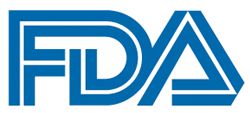Blinatumomab Granted Full Approval by the FDA for B-cell Precursor ALL
Blinatumomab (Blincyto) has been granted a full approval by the FDA as a treatment for adults and children with relapsed/refractory B-cell precursor acute lymphoblastic leukemia, regardless of Philadelphia chromosome status.
FDA

Blinatumomab (Blincyto) has been granted a full approval by the FDA as a treatment for adults and children with relapsed/refractory B-cell precursor acute lymphoblastic leukemia (ALL), regardless of Philadelphia chromosome (Ph) status, according to the developer of the anti-CD19 immunotherapy, Amgen.
The approval was based on data from the phase III TOWER study, in which the median overall survival (OS) with blinatumomab was 7.7 versus 4 months with standard chemotherapy for patients with Ph-negative relapsed/refractory B-cell precursor ALL. Treatment with blinatumomab reduced the risk of death by 29% versus standard chemotherapy (HR, 0.71; 95% CI, 0.55-0.93;P= .012).1,2
The application also contained data from the phase II ALCANTARA trial, which demonstrated the efficacy of blinatumomab in patients with Ph-positive relapsed/refractory B-cell precursor ALL.3 The median OS in this single-arm, open-label study was 7.1 months. Sixteen of 45 patients (36%) achieved a complete response (CR) or CR with partial hematological recovery (CRh) during the first 2 cycles of therapy, including 4 of 10 patients with aT315Imutation. MRD-negative status was achieved by 88% of CR/CRh responders.
"For researchers and physicians, overall survival is the primary goal of treatment and the gold standard of outcomes, demonstrating a clear value to patients," TOWER study investigator Anthony Stein, MD, co-director of the Gehr Family Center for Leukemia Research, City of Hope, said in a statement. "Data from the TOWER study support the use of this single agent bispecific T cell engager immunotherapy, the first to demonstrate superior overall survival in patients with Philadelphia chromosome-negative relapsed or refractory B-cell precursor ALL, offering a much needed alternative with significantly improved outcomes over standard of care chemotherapy."
The open-label phase III TOWER trial randomized 405 patients in a 2:1 ratio to blinatumomab (n = 271) or investigator’s choice of 1 of 4 standard chemotherapy regimens (n = 134). The median patient age was 37 years in both arms. Other baseline characteristics were also well balanced in the blinatumomab versus the standard chemotherapy arm, including median bone marrow blasts (80% vs 79%), prior salvage therapy (56% vs 52%), and prior allogeneic stem cell transplant (alloSCT; 35% vs 34%).
Blinatumomab was administered in 6-week cycles of 4 weeks on (continuous infusion of 9 µg/d in week 1 of cycle 1, then 28 µg/d) and 2 weeks off. Patients received dexamethasone prior to blinatumomab to prevent cytokine release syndrome. If remission was reached following 2 induction cycles, patients could receive treatment until relapse. OS was the primary efficacy endpoint. Complete remission (CR) and combined CR, CRh, or CR with incomplete hematologic recovery (CRi) were secondary outcome measures.
The CR rate with blinatumomab was 34% versus 16% with standard chemotherapy (P<.001). The combined CR/CRh/CRi rates were 44% versus 25%, respectively (P<.001). Among the overall population of patients achieving a CR/CRh/CRi, minimal residual disease (MRD)negative status was achieved by 76% of patients receiving blinatumomab versus 48% of patients receiving standard of care. The 6-month estimated event-free survival rates were 30.7% versus 12.5%, respectively (HR, 0.55; 95% CI, 0.43-0.71).
The OS benefit with blinatumomab was observed across prespecified patient subgroups based on age, prior salvage therapy, or allogenic stem cell transplant. The study was halted early for efficacy based on the recommendation of an independent data monitoring committee.
The safety analysis for TOWER was based on 376 patients who received at least 1 dose of blinatumomab (n = 267) or standard chemotherapy (n = 109). Of these patients, 57% and 25%, in the blinatumomab and chemotherapy arms, respectively, started ≥2 cycles.
The adverse event (AE) profile was similar between the 2 arms and consistent with previous studies of blinatumomab. The incidence of all-grade AEs was 99% in both treatment arms. Grade 3 AEs occurred in 37% of the blinatumomab arm and 30% of the standard chemotherapy arm. The rates of grade 4 AEs were 31% and 44%, respectively. Grade 5/fatal AEs occurred in 19% of the blinatumomab arm versus 17% of the chemotherapy arm, including grade 5 infection rates of 11% and 12%, respectively.
Grade ≥3 AEs of interest included neutropenia (38% in the blinatumomab arm vs 58% in the standard chemotherapy arm), infection (34% vs 52%), neurologic events (9% vs 8%), and cytokine release syndrome (5% vs 0).
"Relapsed or refractory ALL is often a lethal disease, with a median overall survival of just four months on standard of care chemotherapy," Bijal D. Shah, MD, medical oncologist, Moffitt Cancer Center, said in a statement. "As a physician, my goal is to identify treatments that improve response rates in patients with aggressive hematologic malignancies. Blincyto is an option that has been shown to help these high-risk patients fight their disease."
The FDA initially granted an accelerated approval blinatumomab as a treatment for patients with Ph- relapsed/refractory B-precursor ALL in December 2014, based on findings from a phase II trial. Prior to this decision, the agent had received a breakthrough therapy designation. The blinatumomab label includes a boxed warning regarding cytokine release syndrome and neurotoxicity. Additionally, the FDA requires completion of a risk evaluation and mitigation strategy (REMS) program prior to use of the anti-CD19 agent.
References:
- Kantarjian H, Stein A, Gökbuget N, et al. Blinatumomab versus chemotherapy for advanced acute lymphoblastic leukemia.N Engl J Med.2017;376(9):836-847. doi:10.1056/NEJMoa1609783.
- Topp MS, Stein A, Nicola Gökbuget N, et al. Blinatumomab improved overall survival in patients with relapsed or refractory Philadelphia negative B-cell precursor acute lymphoblastic leukemia in a randomized, open-label phase 3 study (TOWER). Presented at: 2016 European Hematology Association Congress; June 9-12, 2016; Copenhagen, Denmark. Abstract S149.
- Martinelli G, Boissel N, Chevallier P, et al. Complete hematologic and molecular response in adult patients with relapsed/refractory Philadelphia chromosomepositive b-precursor acute lymphoblastic leukemia following treatment with blinatumomab: results from a phase II, single-arm, multicenter study (published online March 29, 2017).J Clin Oncol. doi:10.1200/JCO.2016.69.3531.